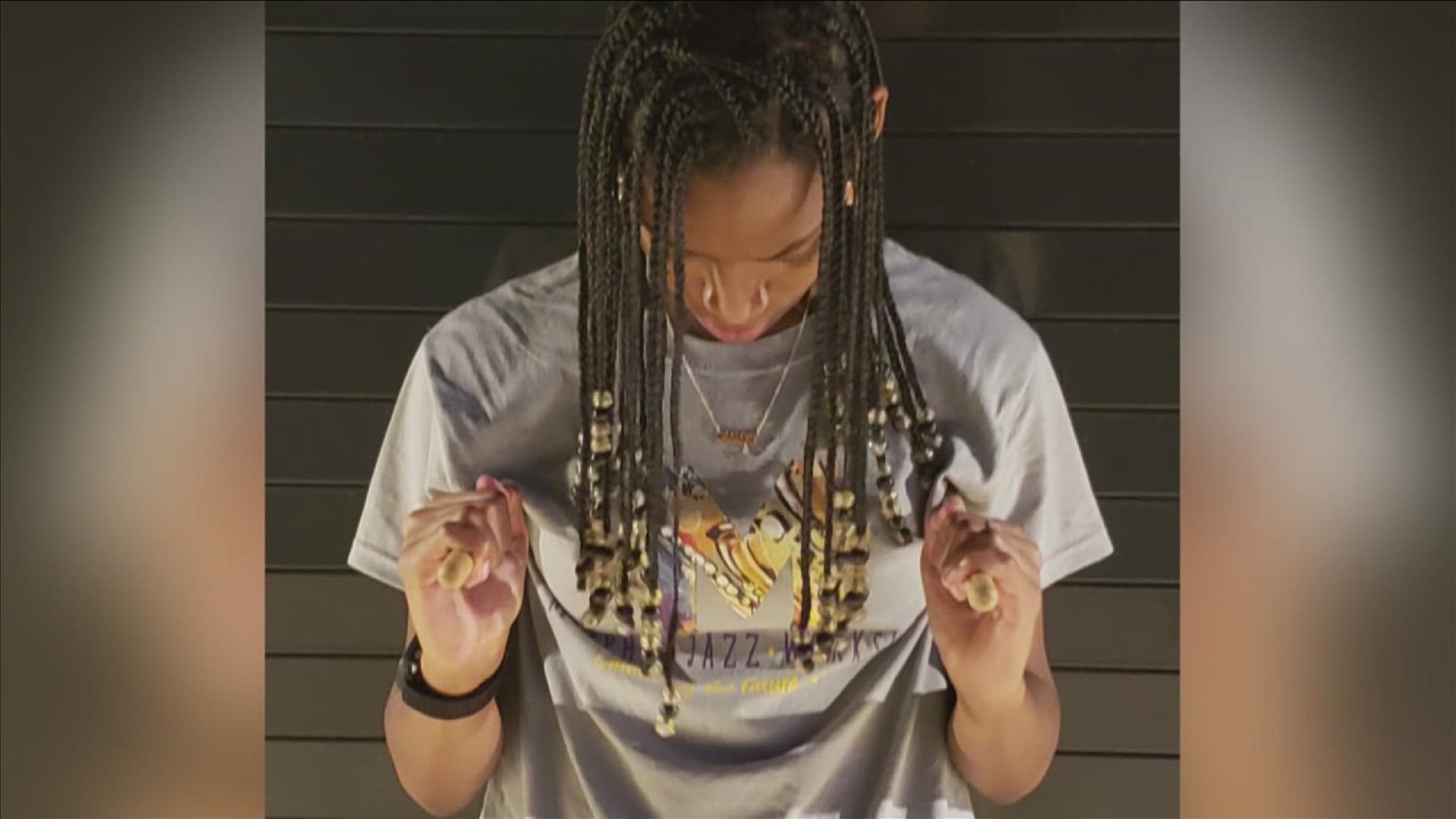MEMPHIS, Tenn. — ABC 24 Memphis has partnered with Vitalant and the Sickle Cell Foundation of Tennessee for our Give Blood, Share Joy campaign. We spoke with individuals living with sickle cell.
There are things we can control and others we cannot. Rather than harping on the uncontrollable, 17-year-old Ramyla Dahmer chooses to boldly take on life.
“I see life as unpredictable. And if life is to be unpredictable, then I say that you should live it to the fullest at every predictable moment,” said Ramyla, Sickle Cell Foundation of Tennessee Youth Ambassador. It’s important to live to the fullest no matter how good or bad that moment seems.
For Dahmer, life is learning from the unpredictable. “Learning is one of my biggest passions…I've loved to learn and just absorb new knowledge about things that I didn't know before. And I feel like the more you learn, the more empathy you can have as a person,” said Ramyla.
It is a lesson Dahmer learned from her own experiences. “I remember like yesterday, they called and they said, hey, you know, we want to talk to you about your daughter, you know, she has sickle cell disease. And we want to get her started over here at St. Jude's doing clinicals. And I was like, wait, wait, wait. What do you mean sickle cell disease,” asked Monee Dahmer, Ramyla’s mother.
Sickle cell is a disease is diagnoses when red blood cells, which carry oxygen through the body, are shaped like a sickle shape. Those cells slow or block blood flow. “I found out on campus in college when I was participating in the blood drive. They called me back, way back then and said, ‘Hey, you have a sickle cell trait,’” said Monee Dahmer.
In order to have sickle cell, both parents have to carry the trait. When Monee met Ramyla’s father. He, too, got tested. “They said he didn't have a trait. So, we had our first daughter, no trait, no nothing,” said Monee. “What happened was when his doctor tested him, they only tested for the main sickle cell trait, and not all abnormal hemoglobin. So, he actually had a recessive trait. Put the trait, his trait with my S trait did make the sickle cell disease.”
It was the beginning of the unexpected. “We had that first hospital visit at two months. And that's when she actually had to stay in the hospital,” said Monee. “When she was four, she actually had parvo virus. And it actually caused her to have to have her first transfusion at that time…It was a lot of things that we had to kind of deal with scary, you know, a lot of times, because you'd never really knew the outcome of when we were going down whether or not it was going to be something more serious than the last visit…Just really kind of making sure that we speak up and be her advocate in terms of, you know, what we're willing to accept and asking those questions about what's next.”
They are questions, Ramyla would soon have to ask for herself. “I was able to absorb what the doctors were telling me and start to be comfortable enough to ask questions like, Okay, what do I have? What is this,” asked Ramyla.
She became an advocate for herself especially when feeling pain. “When I get to a pain crisis level, that's where I get to points where like, I couldn't walk in my most recent pain crisis. And I can't really move. It's almost like a paralyzing pain,” said Ramyla. “I’ve become resilient, in a sense, because I can go through the day without, you know, looking a certain way in making people think, Oh, is she okay? When I do show pain that I'm having, and people don't know what sickle cell is, instead of invoking empathy, it invokes pity, and then it becomes this thing of, well, you can't do this, are you sure you can do this.”
The short answer is yes. She embraced those predictable moments to educate others. “I have the opportunity to tell them what sickle cell disease is. Because I've kind of become this advocate for myself,” said Ramyla.
She also advocates for others. Ramyla is the Sickle Cell Foundation of Tennessee’s Youth Ambassador. She also received her Girl Scout Gold Award spreading awareness about the disease. She is also a musician, producer, and DJ fully living life.
We asked, “Monee, tell me well, how would you describe Ramallah in one word? Then, why?”
“One word, one word, extraordinary. It makes me say one word. She is the total package, you know, she's talented, strong academically, just a student leader. I mean, she's just extraordinary. I mean, I'm amazed at all that she does and that she is talented,” said Monee.
“I'm very grateful. Because I know, I've been very blessed to have them throughout my life as a solid support system. And I would not be where I am today, especially as, you know, aware, and as much of an advocate as I am today, without the support of them, and the encouragement from them,” said Ramyla.
It is an encouragement Ramyla shares with others living with sickle cell. “Beneath all the truth is that you deserve to be heard…Get what you deserve, chase after what you deserve, advocate for yourself. And as much as it's scary, the gratification that comes after and the satisfaction that comes after will outweigh it by tons,” said Ramyla.
She is a senior in high school ready for that next step. Although she does not know what the future holds, she will live it to the fullest.

